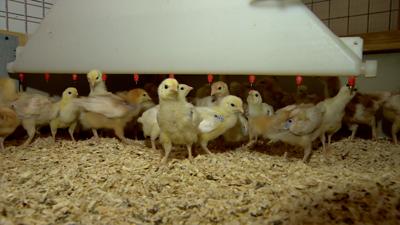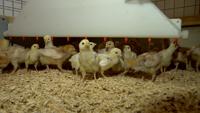DELAWARE - Delaware’s poultry industry, a major pillar of the First State’s economy, could soon get a boost from new bipartisan legislation aimed at combating avian flu and protecting both farmers and consumers.
U.S. Rep. Sarah McBride announced the Save Our Poultry Act, a proposal she co-sponsored with Republican Rep. Mike Lawler, to increase federal research and support for poultry producers facing mounting threats from disease outbreaks.
According to her team, 12 Sussex County farmers and 54 Sussex County residents specifically reached out to McBride with concerns surrounding avian flu. She referred to an encounter with a Delaware poultry farmer who was forced to cull his entire flock after just one potential exposure to avian flu, “Fortunately, this farmer was able to survive the financial toll, but many farmers can't.” said McBride.
Delaware is home to roughly 200 million chickens according to the Congresswoman, with Sussex County being the epicenter of the state’s poultry farming. McBride said the new legislation would help scale the federal response to avian flu, fund research through the U.S. Department of Agriculture and unlock prevention strategies.
“This bipartisan Save Our Poultry Act would help to guarantee that the federal government is meeting the scale of this crisis,” McBride said. “When a farmer is forced to cull their stock, there are fewer chickens producing eggs or being supplied to our grocery stores. That increases the cost of groceries.”
Urging Short- and Long-Term Action
While the bill focuses on long-term prevention through research, McBride also called out administration for delaying nearly $10 million in promised payments to Delaware farmers under the Inflation Reduction Act.
“Farmers are owed that money, and the federal government needs to pay,” McBride said, noting that the funds were intended to improve agricultural infrastructure and lower energy costs. “Many farmers have been promised that money. It has not come to them yet.”
Next Steps for Prevention
The legislation, if passed, would fund comprehensive research to determine best practices for avian flu prevention. McBride said that while it’s too early to predict exact solutions, the funding is critical to finding a sustainable path forward.
“These conversations are really complicated,” she said. “It would be premature to predetermine a path, but that’s why this legislation is so urgently necessary.”
McBride emphasized her bipartisan approach, noting this is the fourth bill she has co-led in this Congress.







